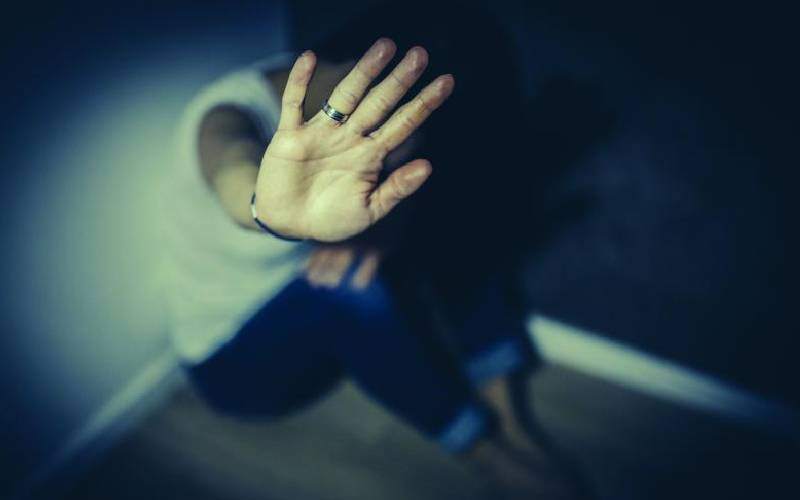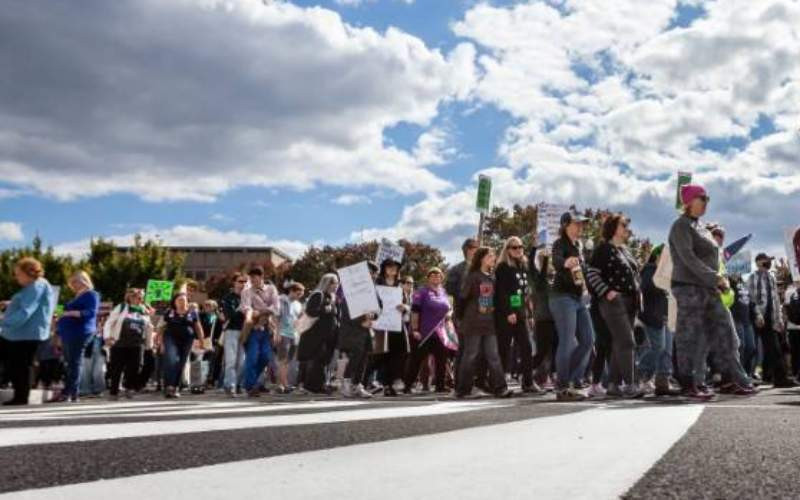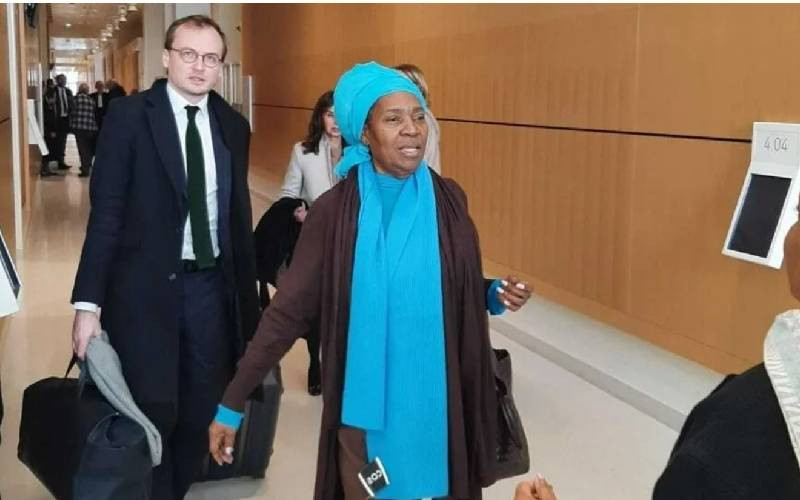In the last week alone, two women have been stripped naked in public over accusations of indecent dressing. The two women represent our mothers, wives, daughters, and sisters.
Their brutalisation under the gaze of cameras for the entire world to see, is also a brutalisation of all of our female relatives and friends. It is a reminder of the kind of people we are, as a country.
In the recent past, I have written two articles on our collective normalisation of the murderous habits of our leaders and police force. In the same vein, this week let us examine our collective desensitisation to the brutalisation of women in our society.
It is hard to be a woman in Kenyan society. Women receive less schooling than men. Lacking education many are confined to the role of breeding machines and domestic servants. This is a form of brutalisation that denies our daughters, sisters and mothers a chance to realise their full potential in life. In addition, many experience physical abuse. Wife beating is common, and spans the entire spectrum of socio-economic class in Kenya – from Kibera to Kilimani to Karen.
The traumas within the household and family extend to the public as well. Sexual harassment is common in our offices, both public and private. At bars and eateries across the country, our women exist purely for the pleasure of men. Go out with otherwise urbane Kenyan men and what you will see will be table of chatty men, but women who rarely speak except when asked what they want to drink or eat. For the most part our mothers and sisters exist to be seen and not heard. This is the world we live in. This is the world that we have created for ourselves and future generations of Kenyans. It is a world that confines half of our population to a deplorable existence, with truncated life dreams and a very low glass ceiling.
So it is no wonder that a group of perverted thuggish young men found it totally normal to strip a woman naked in broad daylight and then proceed to sexually assault her. It is also not a wonder that a sizeable proportion of, otherwise, sane Kenyan men supported this ghastly act. This is who we are as Kenyans, and especially Kenyan men. We have grown accustomed to demean and belittle the women around us. We see our fathers treat our mothers like trash. We treat our sisters and girlfriends like trash. We fail to educate our daughters, preferring to spend the money on sons.
The men who stripped the women are not some subset of deranged men outside of the mainstream of Kenyan society. No, they are as mainstream as it gets. They are not any different from the CEO who forces married female employees to sleep with him at the threat of losing their jobs; or the middle class father in Kilimani who forcibly sleeps with his house-help; or the men who exploit poor university students’ financial desperation for their own sexual gratification. We are all complicit in this. And the saddest part of it all is that we view these acts as perfectly normal.
Our mothers and sisters go through a lot. Many Kenyan households would collapse in a second if it were not for the women propping them up with sacrifice after sacrifice. In many ways, we are our mothers’ children. So to imagine that after all that they also have to worry about being physically and psychologically molested by uncouth men in the streets is, quite frankly, asking too much of them. If we were to speak honestly, we would readily acknowledge that our mothers and sisters are the most decent among us. We need to treat them better.
And by the way, treating women better is not just a matter of decency and fairness. It also comes with enormous economic benefits.
Think for a second, which part of Kenya has the most number of female MPs in Parliament? Which part of Kenya is also known for its fiercely strong-willed, independent and entrepreneurial women? Which part of Kenya is also the wealthiest? In addition, studies after studies have shown that the returns to educating girls far outweigh that for boys. In short, empowered societies rest on the shoulders of empowered women.
As a matter of urgency, we need to de-normalise the brutalisation of women in our society. And to do this, we need to start at home. The men at the Embassava stage learned their cruel misogynist ways from a young age watching how their male relatives, pastors, and community leaders treated women.
 The Standard Group Plc is a
multi-media organization with investments in media platforms spanning newspaper
print operations, television, radio broadcasting, digital and online services. The
Standard Group is recognized as a leading multi-media house in Kenya with a key
influence in matters of national and international interest.
The Standard Group Plc is a
multi-media organization with investments in media platforms spanning newspaper
print operations, television, radio broadcasting, digital and online services. The
Standard Group is recognized as a leading multi-media house in Kenya with a key
influence in matters of national and international interest.
 The Standard Group Plc is a
multi-media organization with investments in media platforms spanning newspaper
print operations, television, radio broadcasting, digital and online services. The
Standard Group is recognized as a leading multi-media house in Kenya with a key
influence in matters of national and international interest.
The Standard Group Plc is a
multi-media organization with investments in media platforms spanning newspaper
print operations, television, radio broadcasting, digital and online services. The
Standard Group is recognized as a leading multi-media house in Kenya with a key
influence in matters of national and international interest.









